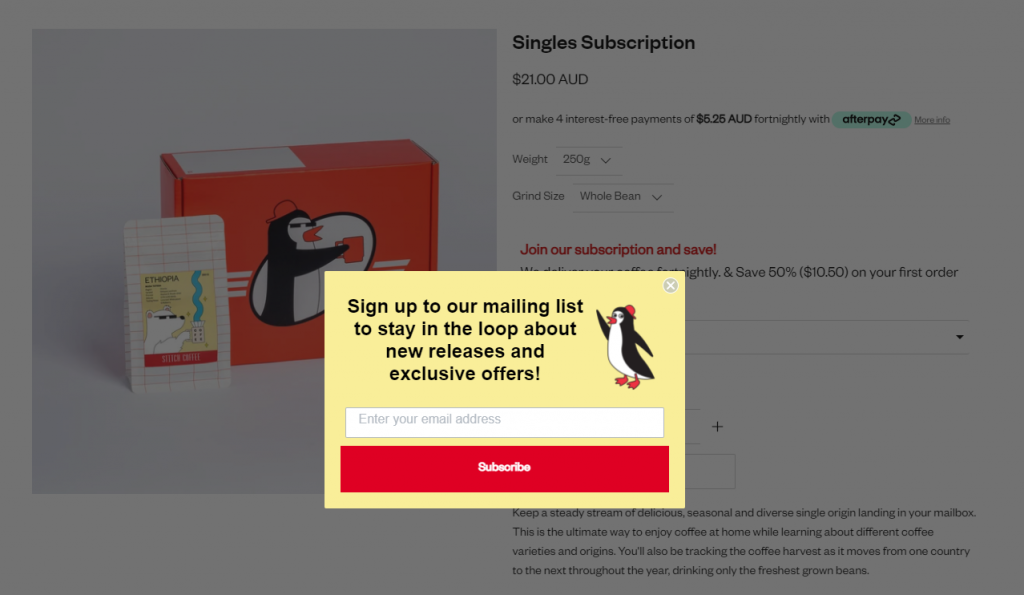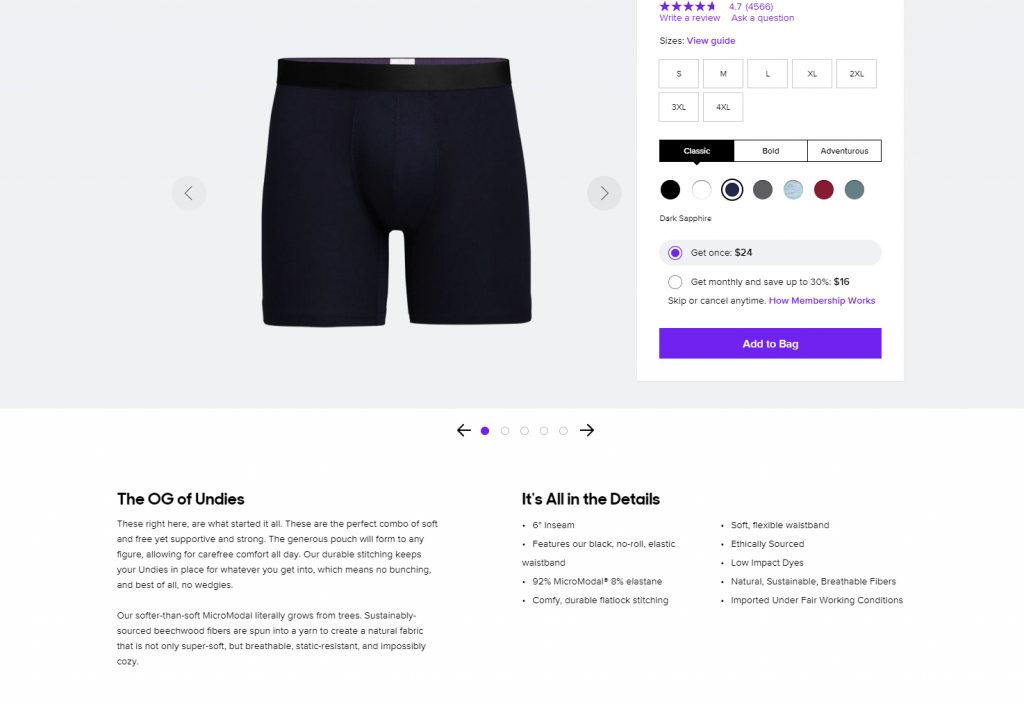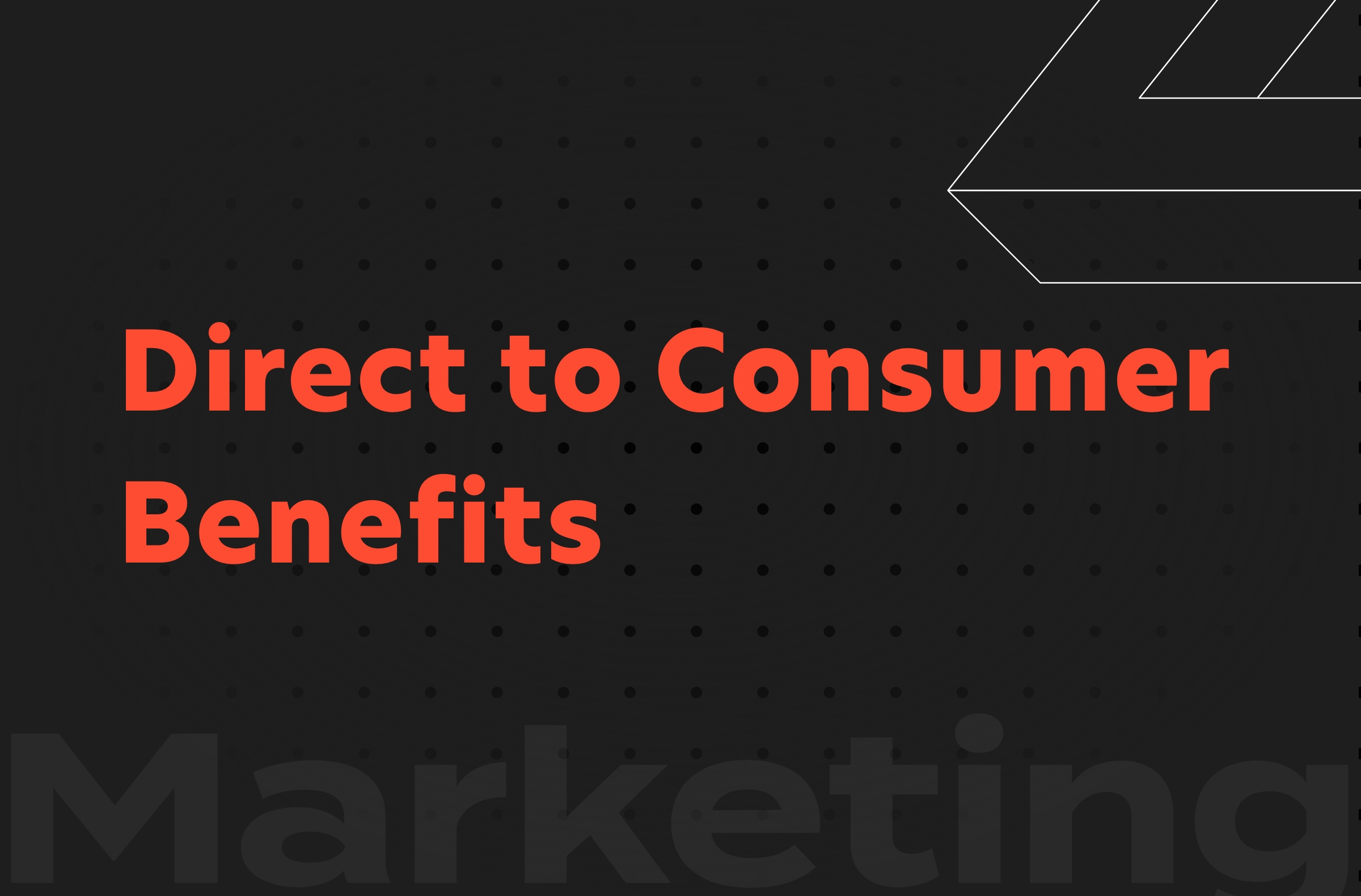The direct to consumer business model is nothing new but it’s only been in recent years that it has begun to thrive. The Internet, eCommerce and the digital age has ushered in this growth, and the benefits of direct to consumer indicates that it won’t be slowing down any time soon.
Many brands are adopting the DtC business model, with over 57% of consumer brands now embracing DtC. But what’s the reason behind this growth? Are the benefits really that good?
In this article, we go over 7 great benefits of direct to consumer. We also explain why you, as a business owner, should consider going down the route that many successful brands have already taken!
What is Direct to Consumer selling?
Direct to Consumer (known as either DtC or D2C) is a retail model that essentially cuts out any middlemen. This includes channels such as wholesalers and retailers, and sells products and services direct to consumers and customers.
Typically reserved for eCommerce and online stores, many DtC brands specialise in a handful of particular products or product categories. Companies such as Sleeping Duck or MeUndies are examples of successful adoptions of the DtC business model.

Sleeping Duck cuts out the middleman and sells directly to customers.
Benefits of Direct to Consumer selling
Benefit 1: Greater Profit Margins
The number one reason why brands adopt the DtC business model is the greater profit margin compared to traditional models. This comes directly as a result of cutting out wholesalers, retailers and any other middlemen. Normally, going through these channels will cost you more as these companies will take a portion of your profits. But the DtC model avoids this problem, allowing you to reap that extra profitability.
Because of the greater profit margins, DtC brands can actually afford to sell their products or services at a lower cost. This encourages more shoppers to choose to buy them directly from the manufacturer rather than going through a retailer.
Benefit 2: Better Customer Relationships
Building trust with your customers is key to successful business and adopting a DtC model lets you do that better than if you were to go through multiple channels. It makes perfect sense! By removing the amount of channels between you and your target audience, the easier it is to build a relationship that fosters loyalty.
A streamlined DtC model allows you to provide much better customer service because your customers have greater access to your information and support teams and features. You can directly respond to questions, promptly arrange for refunds and returns and get new information in front of their eyes more quickly. Better customer service almost always results in better customer relationships, which helps grow and retain a loyal customer base.
Benefit 3: Better Access to Customer Data
How else can you build strong customer relationships? The answer is in the data and numbers, which selling direct to consumers can give you more of. A direct-to-consumer retail model gives you the opportunity to collect valuable data and clear insights about the behaviour of your customers. This data would not be as accessible or clear if your customers bought your product offering through retailers or wholesalers.

A DtC model can let you directly collect customer data for personalised ads. Source: Stitch Coffee
The data you collect can help you to tailor your products and services (as well as your overall marketing) directly to your customers in the form of larger mailing lists or personalised ads. This results in more data-driven consumer sales for your business. The greater access to customer data will also save money on any market research efforts you might undertake.
Benefit 4: Greater Speed to Market
Another benefit of direct to consumer is your ability to get new products or product iterations to the market much quicker than you would if you had to go through retailers or wholesalers. This is a great benefit in general, but it is especially impactful in the case of product recalls, where you need to release a product variant that addresses specific concerns or issues. It also works both ways – customers can give you immediate feedback which you can use to enhance your product offering.
It also allows you to be more innovative and experimental with your product offering. Retailers are often tentative on accepting brand new products without data or research that backs it up. You can bypass this completely by adopting a DtC model.
Benefit 5: Omnichannel eCommerce
Adopting a DtC model also gives you the benefit of omnichannel commerce. Omnichannel commerce is a form of marketing that provides customers with a unified customer experience no matter where they are, what social media platforms they use or what device they are using.
A unified shopping experience requires control over all potential touchpoints in the buying journey – something that the traditional sales model cannot provide. Because a DtC business model gives you complete control over your distribution channels, you can provide access to your products, services and support on all platforms and devices. This gives you greater reach, increased profits and boosted customer satisfaction.
Benefit 6: Direct Control Over Branding
In a non-DtC business model, manufacturers only have control of product packaging and outbound marketing strategies such as television advertisements. They lose control over their product once they hit the shelves of retail stores.
DtC commerce will give you complete control of your branding, including your messaging, brand story and brand reputation. This allows you to customise your branding to better fit your customer’s needs. In a world where customised shopping experiences are more effective than ever, being able to personalise and adjust your branding strategies will give you increased sales, profits and revenue.

Warby Parker is able to send the promotions it wants directly to their customers.
Benefit 7: Consumers Prefer Direct to Consumer Selling
As we mentioned at the top of this article, the way people shop is changing. More and more consumers prefer to buy their products directly from the websites of manufacturers rather than multi-retailer sites (55% to be in fact!).
Why is this? You can point to the fact that shoppers want to be fully informed before making a purchase – manufacturers are able to do this to a greater extent with a dedicated eCommerce website containing in-depth information about their offerings. Consumers also want to avoid buying knock-offs or fakes. As a result, consumers will be more trustful of buying a product directly from the manufacturer, as opposed to a site like Amazon or eBay.

Manufacturer websites better inform potential buyers about their products. Source: MeUndies
Here’s some more stats to back up consumer preference for DtC:
- Two-thirds of consumers expect the ability to interact directly with a brand.
- Consumers trust DtC brands amid the pandemic, with 52% of DtC brands experiencing surges in demand.
- Over 50% of consumers prefer to buy straight from the manufacturer.
As you can see, direct-to-consumer commerce is clearly becoming the more preferred method of shopping!
Should you adopt a DtC business model?
It’s clear to see that the benefits of direct to consumer has a tangible, beneficial impact on the success of a business. But is it right for your business? Our expert eCommerce team at ZipZipe can help you answer that! Get in touch with our team to find out if and how we can help you adopt a DtC commerce strategy!
Want more articles designed to give you more insight on the world of digital marketing? Head on over to the ZipZipe blog for more great blogs!




